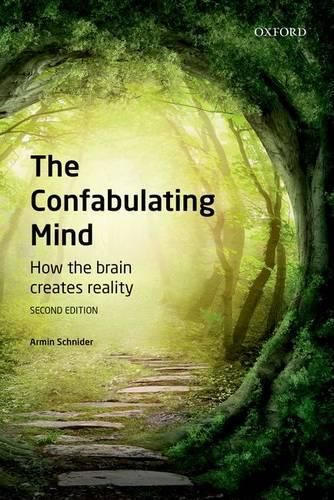Readings Newsletter
Become a Readings Member to make your shopping experience even easier.
Sign in or sign up for free!
You’re not far away from qualifying for FREE standard shipping within Australia
You’ve qualified for FREE standard shipping within Australia
The cart is loading…






Confabulations are recitations of events and experiences that never happened, ranging from incorrect responses to questions to a blatant confusion of reality. The Confabulating Mind provides the most up-to-date account of the causes, anatomical basis, and mechanisms of the phenomenon of false memories. In this significant update on the first edition, the author analyses new and diverse examples of striking clinical cases, discusses children’s sense of reality, and incorporates his research on a distinct form of confabulation that is characterized by a confusion of reality. The book also examines other forms such as deja-vu, paramnesic misidentification, and anosognosia; looks at false memories as they occur in healthy people; and considers how the brain uses orbitofrontal reality filtering to create reality. By re-tracing the history of confabulations and integrating the latest insights into the mechanisms of confabulations, it summarises current interpretations of confabulations before making recommendations for future study. This book is important reading for neurologists, psychiatrists, neuropsychologists, cognitive neuroscientists, and other scientists and clinicians interested in the organization of memory and thought.
$9.00 standard shipping within Australia
FREE standard shipping within Australia for orders over $100.00
Express & International shipping calculated at checkout
Confabulations are recitations of events and experiences that never happened, ranging from incorrect responses to questions to a blatant confusion of reality. The Confabulating Mind provides the most up-to-date account of the causes, anatomical basis, and mechanisms of the phenomenon of false memories. In this significant update on the first edition, the author analyses new and diverse examples of striking clinical cases, discusses children’s sense of reality, and incorporates his research on a distinct form of confabulation that is characterized by a confusion of reality. The book also examines other forms such as deja-vu, paramnesic misidentification, and anosognosia; looks at false memories as they occur in healthy people; and considers how the brain uses orbitofrontal reality filtering to create reality. By re-tracing the history of confabulations and integrating the latest insights into the mechanisms of confabulations, it summarises current interpretations of confabulations before making recommendations for future study. This book is important reading for neurologists, psychiatrists, neuropsychologists, cognitive neuroscientists, and other scientists and clinicians interested in the organization of memory and thought.